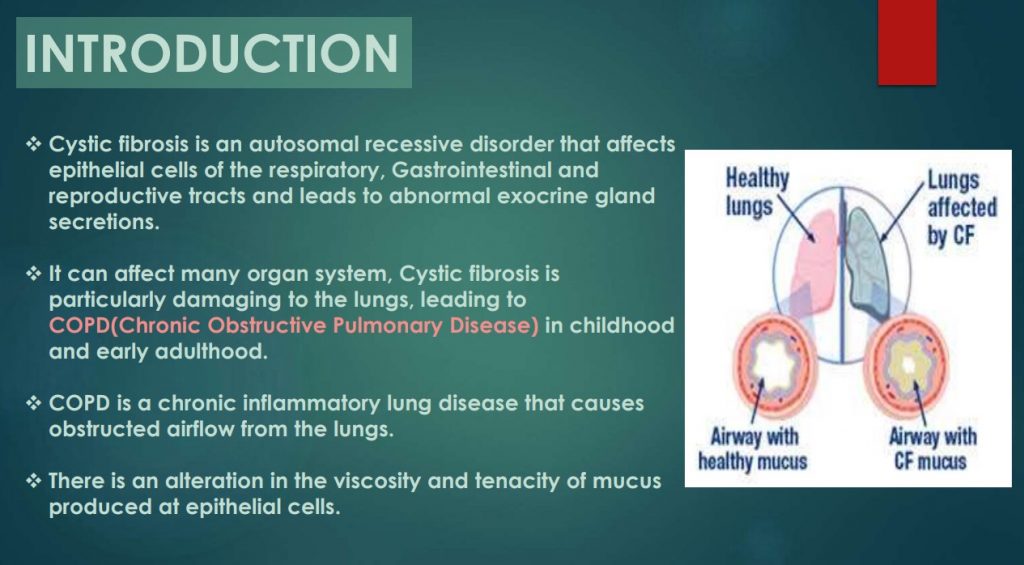Understanding Cystic Fibrosis
Summary:
The “Understanding Cystic Fibrosis” note explains that Cystic fibrosis is an autosomal recessive disorder that affects the respiratory, gastrointestinal, and reproductive tracts due to abnormal exocrine gland secretions. It primarily damages the lungs, leading to chronic obstructive pulmonary disease (COPD) in childhood and early adulthood. The condition is caused by a mutation in the Cystic fibrosis transmembrane regulator (CFTR) gene, resulting in the production of thick and sticky mucus. This mucus obstructs the airways, leading to breathing difficulties and severe lung infections. Additionally, it affects pancreatic function and can cause malnutrition. Common symptoms include salty-tasting skin, persistent coughing, shortness of breath, poor weight gain, and greasy stools. Cystic fibrosis is diagnosed through tests such as the immunoreactive trypsinogen (IRT) test, sweat chloride test, chest X-ray, CT scan, and pulmonary function tests. Treatment involves medications, such as antibiotics and bronchodilators, to manage lung infections and improve airflow. Airway clearance techniques, including chest physical therapy, are also utilized to alleviate mucus obstruction. In some cases, cystic fibrosis transmembrane conductance regulator (CFTR) modulators can help improve the function of the defective CFTR gene.
Excerpt:
Understanding Cystic Fibrosis
INTRODUCTION
- Cystic fibrosis is an autosomal recessive disorder that affects epithelial cells of the respiratory, Gastrointestinal and reproductive tracts and leads to abnormal exocrine gland secretions.
- It can affect many organ systems. Cystic fibrosis particularly damages the lungs, leading to COPD(Chronic Obstructive Pulmonary Disease) in childhood and early adulthood.
- COPD is a chronic inflammatory lung disease that causes obstructed airflow from the lungs.
- There is an alteration in the viscosity and tenacity of mucus produced at epithelial cells.
- The defective gene responsible for CF leads to the creation of thicker, stickier mucus than is usual.
- This mucus is difficult to cough out of the lungs. This can make breathing difficult and lead to severe lung infections.
- Over time, mucus buildup and infections result in permanent lung damage, including the formation of scar tissue (fibrosis) and cysts in the lungs.
- The mucus also interferes with pancreatic function by preventing enzymes from properly breaking down food. Digestive problems result, potentially leading to malnutrition.


Reviews